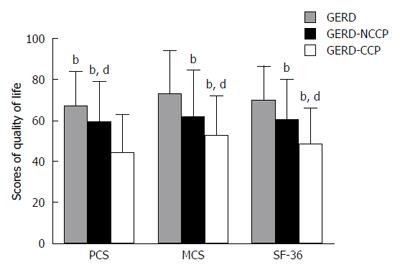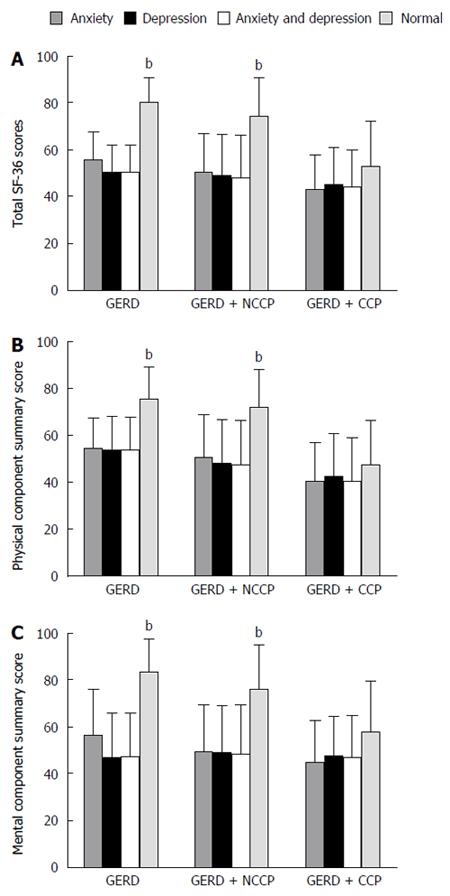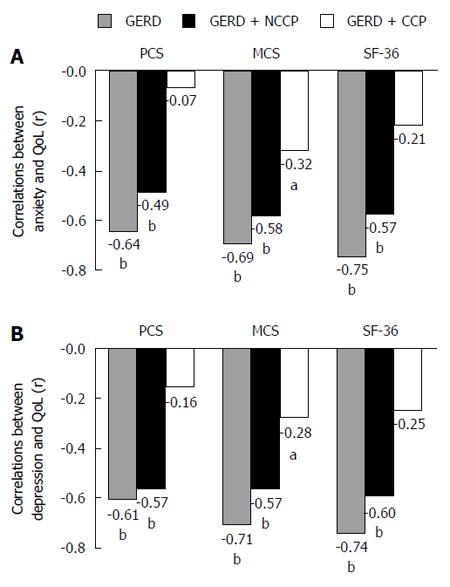Copyright
©The Author(s) 2017.
World J Gastroenterol. Jan 7, 2017; 23(1): 127-134
Published online Jan 7, 2017. doi: 10.3748/wjg.v23.i1.127
Published online Jan 7, 2017. doi: 10.3748/wjg.v23.i1.127
Figure 1 Health-related quality of life in gastroesophageal reflux disease patients with or without chest pain.
The physical component score (PCS), mental component score (MCS) and total SF-36 score were highest in patients with gastroesophageal reflux disease (GERD), followed by GERD-NCCP and then GERD-CCP. bP < 0.01 GERD-NCCP or GERD-CCP vs GERD without CP, dP < 0.01 GERD-NCCP vs GERD-CCP.
Figure 2 Health-related quality of life among gastroesophageal reflux disease patients with or without anxiety and depression.
Total SF-36 scores (A), physical component (PCS) (B) and mental component (MCS) (C) scores were much lower in subjects with anxiety, depression, and both anxiety and depression than in those without anxiety and depression for both GERD and GERD-NCCP patients, while this difference was not present in GERD-CCPpatients. bP < 0.01, subjects without anxiety and depression vs subjects with anxiety, with depression, and with both anxiety and depression. CCP: Cardiac chest pain; GERD: Gastroesophageal reflux disease; NCCP: Noncardiac chest pain.
Figure 3 Correlations between psychological distress and quality of life in GERD patients with or without chest pain.
Anxiety (A) and depression (B) were negatively correlated with physical component (PCS), mental component (MCS) and the total SF-36 scores in GERD and GERD-NCCP patients; however, there was only a weak negative correlation with MCS in GERD-CCP patients. The r represents the correlation coefficient. aP < 0.05, bP < 0.01 for the correlation coefficient.
- Citation: Zhang L, Tu L, Chen J, Song J, Bai T, Xiang XL, Wang RY, Hou XH. Health-related quality of life in gastroesophageal reflux patients with noncardiac chest pain: Emphasis on the role of psychological distress. World J Gastroenterol 2017; 23(1): 127-134
- URL: https://www.wjgnet.com/1007-9327/full/v23/i1/127.htm
- DOI: https://dx.doi.org/10.3748/wjg.v23.i1.127











